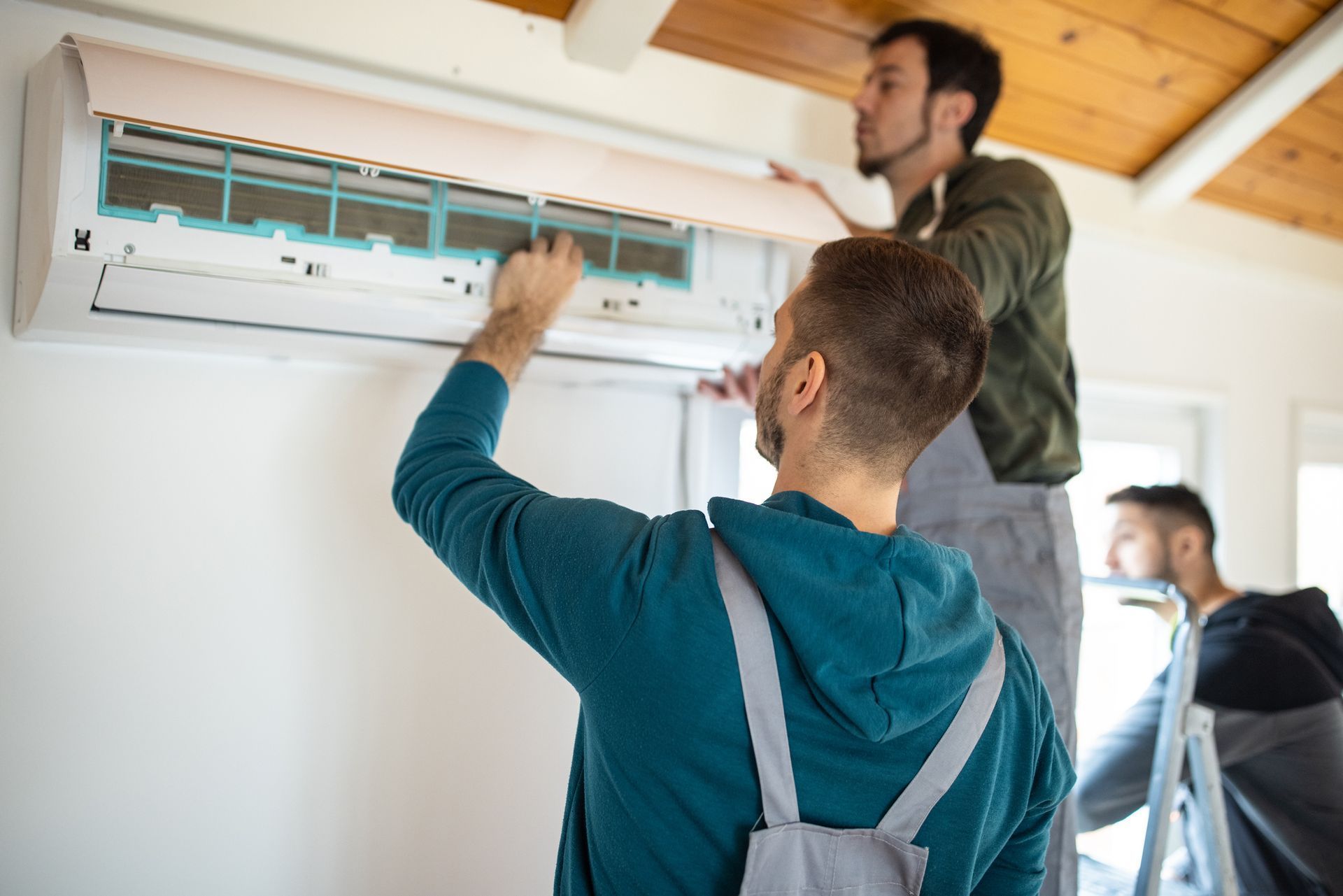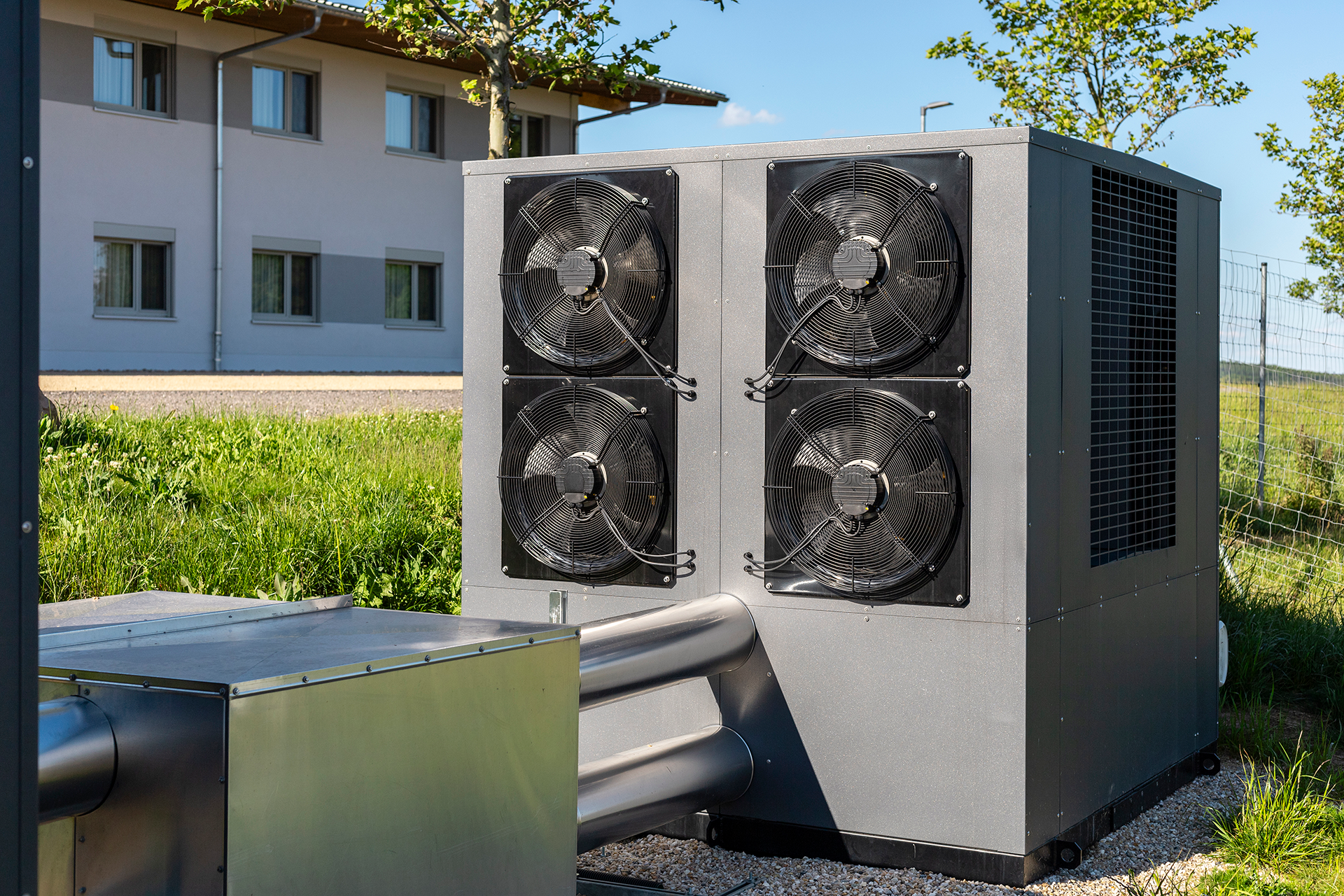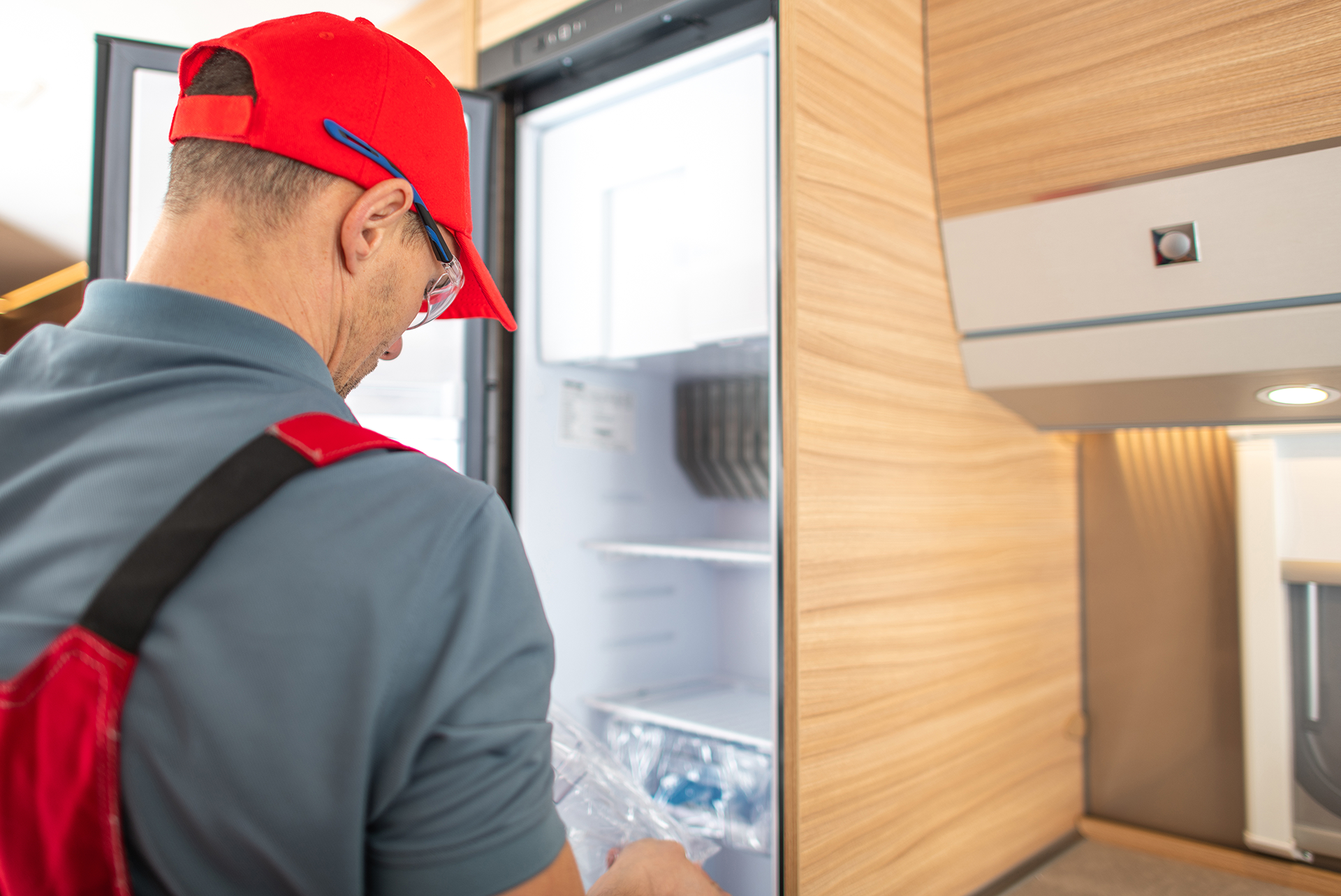Running an HVAC franchise or managing multiple locations means juggling complex risks daily. From equipment breakdowns to liability claims, the stakes are high. A single costly incident can ripple across your entire operation, threatening profitability and reputation. Understanding the right insurance coverage tailored to these unique challenges is not just smart-it’s essential for long-term success. This article dives into the insurance landscape for HVAC franchises and multi-location businesses, offering insights to help protect your growing enterprise.
Why Specialized Insurance Matters for HVAC Franchises
The HVAC industry is expanding steadily, with 56 HVAC service franchise businesses recorded in the U.S. in 2023—a 3.7% increase from the previous year, according to IBISWorld. This growth signals opportunity but also heightened exposure to risks that can vary widely across locations.
Franchise owners face unique challenges. Each location might have different operational risks, local regulations, and customer expectations. Insurance policies must reflect this complexity. A one-size-fits-all approach often leaves gaps in coverage or results in paying for unnecessary protection.
For example, HVAC claims can be expensive. The average claim ranges from $25,000 to $50,000, with over 25,000 incidents annually costing the industry more than $1 billion in losses, as reported by Field Factor. Without proper insurance, a single claim can cripple a franchise location and create ripple effects across the entire business.
Moreover, the nature of HVAC work often involves exposure to hazardous materials and equipment, which can lead to liability claims. For instance, improper handling of refrigerants can not only result in costly repairs but also lead to environmental fines and penalties. Specialized insurance can cover these liabilities, ensuring that franchise owners are protected against unforeseen incidents that could jeopardize their operations and reputation.
Additionally, as technology advances, HVAC systems are becoming more complex, integrating smart technology and IoT devices. This evolution brings about new risks, including cybersecurity threats that could compromise customer data or system functionality. Specialized insurance policies can include coverage for cyber liability, safeguarding franchises against potential breaches and ensuring that they can recover quickly from any incidents that may arise in this digital age.
HVACInsure is fully licensed and permitted to sell contractor and commercial insurance in USA.
We proudly serve clients throughout the United States and maintain partnerships with local Texas insurance carriers to ensure HVAC professionals receive compliant, affordable, and comprehensive coverage that meets project and regulatory requirements.
Key Insurance Coverages for Multi-Location HVAC Businesses
Multi-location HVAC businesses require a layered insurance strategy that covers both individual sites and the enterprise as a whole. Here are some critical coverages to consider:
General Liability Insurance
This protects against third-party claims of bodily injury or property damage. For HVAC franchises, general liability is crucial because technicians work on-site in customers’ homes and businesses. Accidents happen—whether it’s a slip and fall or damage caused during installation. Furthermore, having this insurance can enhance the company’s reputation, as clients feel more secure knowing that the business is adequately insured, which can lead to increased customer trust and loyalty.
Commercial Property Insurance
Each location needs protection against fire, theft, or natural disasters. This coverage safeguards physical assets like tools, equipment, and inventory. For franchises, commercial property insurance can be bundled or customized for each site depending on local risk factors. Additionally, businesses should consider including coverage for business interruption, which can provide financial support during periods when operations are halted due to unforeseen events, ensuring that cash flow remains stable even in challenging times.
Workers’ Compensation Insurance
With multiple crews working across locations, workers’ comp is non-negotiable. It covers medical expenses and lost wages when employees are injured on the job. This coverage also shields the business from lawsuits related to workplace injuries. Moreover, investing in safety training and wellness programs can help reduce the number of claims, creating a safer work environment and potentially lowering insurance premiums over time.
Commercial Auto Insurance
HVAC technicians often drive company vehicles to job sites. Commercial auto insurance protects against accidents, damage, or liability claims involving these vehicles. Multi-location businesses should ensure coverage reflects the fleet size and driving patterns across regions. It's also wise to implement a fleet management system that monitors vehicle usage and driver behavior, which can lead to safer driving practices and lower insurance costs.
Equipment Breakdown Coverage
HVAC systems rely on specialized tools and machinery. Equipment breakdown insurance covers repair or replacement costs if critical equipment fails unexpectedly. This is especially important for franchises managing multiple service locations where downtime can quickly add up. Additionally, regular maintenance schedules and inspections can help prevent equipment failures, ensuring that technicians have the reliable tools they need to serve customers promptly and efficiently.
Pollution Liability Insurance
Refrigerant spills and other environmental hazards pose significant risks. A notable example is a $30,000 refrigerant spill that forced a business out of operation due to lack of insurance, as highlighted by
Field Factor. Pollution liability helps cover cleanup costs and related claims. Furthermore, as environmental regulations become stricter, having this coverage not only protects the business financially but also demonstrates a commitment to responsible practices, which can enhance brand image and attract environmentally-conscious customers.
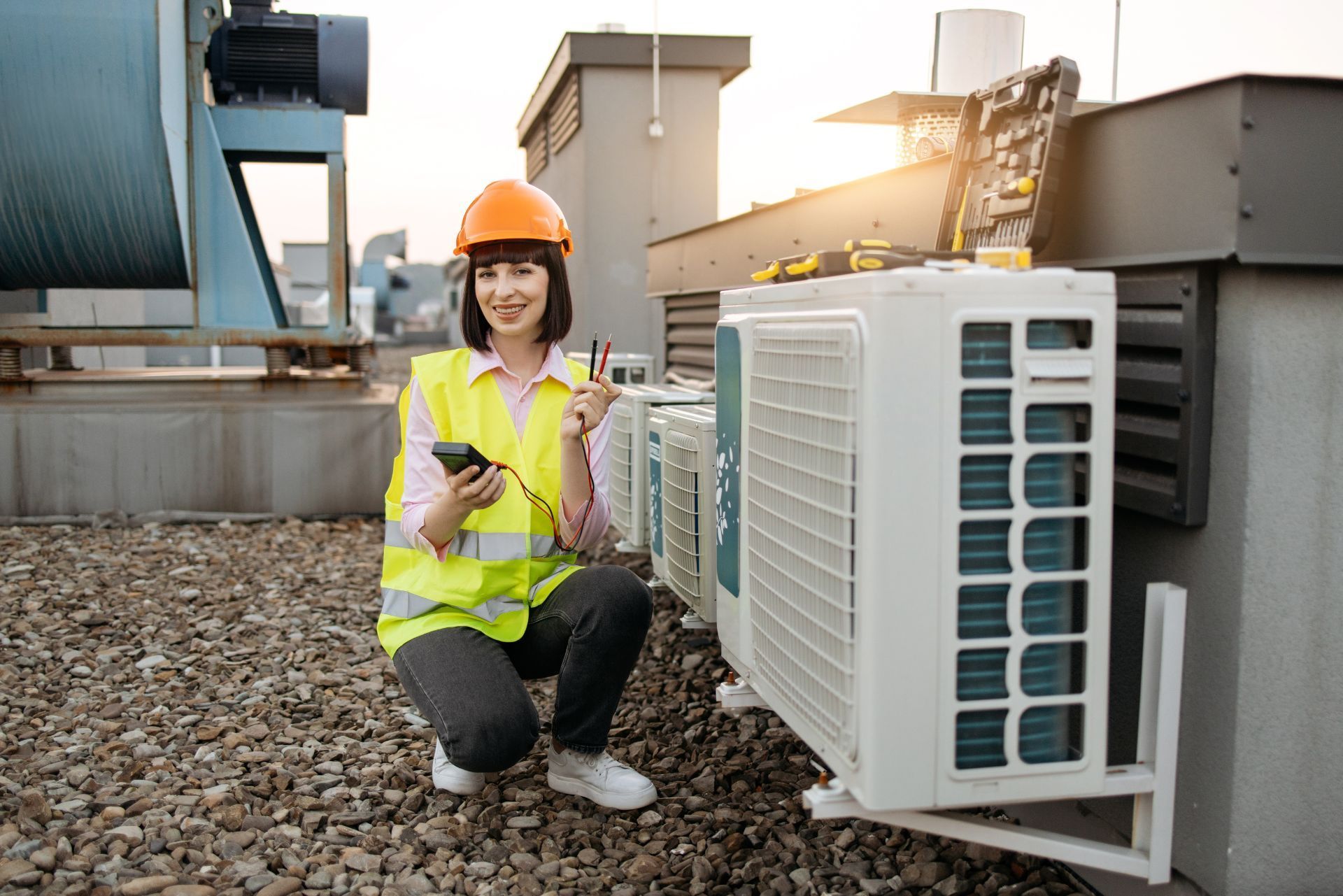
Managing Insurance Premiums Across Multiple Locations
Insurance premiums for HVAC businesses can vary widely depending on location, claims history, and local regulations. For instance, New Mexico saw a 47% increase in HVAC insurance premiums in 2022 due to rising claims frequency and severity, according to Insurance.org. This kind of volatility means franchises must be proactive in managing risk to keep premiums sustainable.
Risk management strategies include:
- Implementing consistent safety protocols across all locations
- Training employees regularly on equipment handling and hazard prevention
- Maintaining detailed records of incidents and near misses
- Working with insurance providers to tailor coverage that reflects actual risk profiles
Centralized oversight of insurance policies can identify coverage overlaps or gaps and help negotiate better rates. Multi-location businesses often benefit from consolidated policies that leverage their scale for premium discounts. Additionally, having a dedicated risk management team can facilitate the sharing of best practices among different locations, ensuring that all branches are aligned with the latest safety standards and operational procedures. This not only minimizes risks but also fosters a culture of safety and accountability within the organization.
Moreover, businesses should consider investing in technology that enhances operational efficiency and safety. For example, utilizing IoT devices for real-time monitoring of HVAC systems can help in early detection of potential failures, reducing the likelihood of costly claims. Similarly, employing data analytics can provide insights into trends and patterns in claims, enabling businesses to make informed decisions about risk management and insurance coverage. By staying ahead of these trends and actively engaging with their insurance providers, HVAC companies can not only manage their premiums more effectively but also enhance their overall service quality and customer satisfaction.
Industry Trends Impacting HVAC Insurance Needs
The commercial HVAC sector is growing rapidly, projected to expand at over 7% annually from 2023 to 2030, marking its fastest growth to date, according to the U.S. Department of Energy. This growth brings more projects, larger teams, and increased exposure to liability. As the industry evolves, HVAC contractors are faced with new challenges, including the integration of advanced technologies such as smart HVAC systems and energy-efficient solutions. These innovations not only enhance service offerings but also introduce new risks that necessitate specialized insurance coverage to protect against potential liabilities associated with system failures or cybersecurity threats.
At the same time, the contractor insurance market is expected to grow from $5.2 billion in 2024 to $8.1 billion by 2033, with a compound annual growth rate of 5.2% from 2026 to 2033, per Verified Market Reports. This reflects both rising demand and the increasing complexity of insurance products tailored to contractors. Insurers are now offering more customized policies that address specific needs, such as coverage for equipment breakdown, environmental liability, and professional indemnity. This trend towards specialization allows HVAC contractors to better manage their risks while ensuring they are adequately protected against the unique challenges they face in an evolving marketplace.
Consumers also expect transparency and convenience. HVAC businesses that provide clear insurance information online gain a competitive edge. As one expert put it, “Consumers now expect the convenience of online information, including insurance details, as a standard practice,” according to HVACInsure.com. This trend pushes franchises to not only secure robust coverage but also communicate it effectively. Moreover, the rise of online reviews and social media has made it essential for HVAC companies to maintain a positive reputation. Companies that are transparent about their insurance policies and claims processes are more likely to build trust with potential clients, which can lead to increased customer loyalty and referrals in a highly competitive environment.
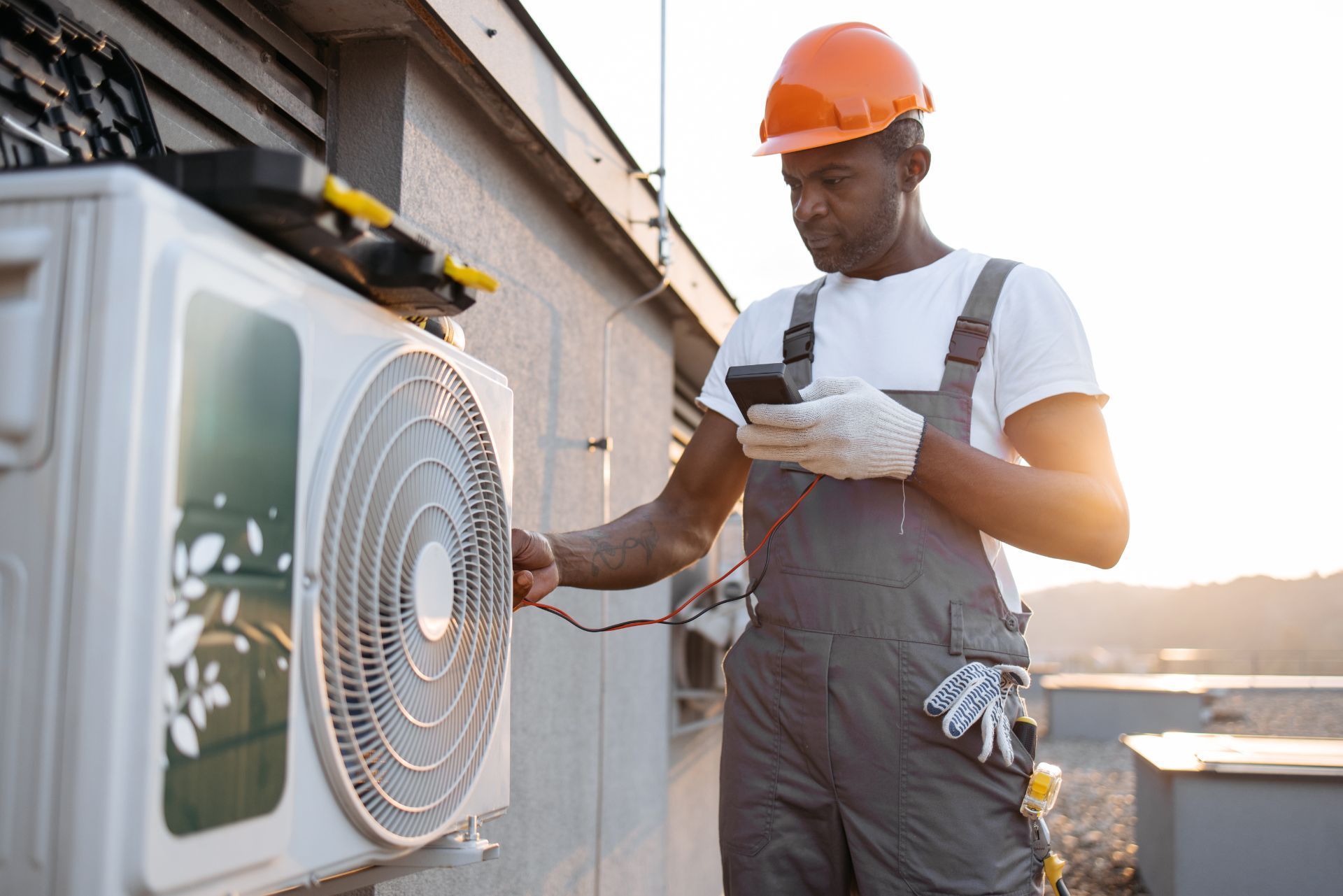
Challenges and Opportunities for Franchise Owners
Managing insurance for multiple locations is no small feat. Each site may face different risks—from weather-related damage in coastal areas to theft in urban settings. Franchise owners must balance uniform coverage standards with local customization. This complexity is compounded by the need to stay informed about varying state regulations and insurance requirements, which can differ significantly from one location to another. As such, franchise owners often find themselves navigating a maze of policies and legalities, making it essential to have a knowledgeable insurance broker who understands the nuances of their specific business model.
One challenge is claim management. HVAC claims are costly and frequent. Without insurance, a single major claim can shut down a location. For example, a $30,000 refrigerant spill without coverage led to business closure, underscoring the critical need for pollution liability insurance. The repercussions of such incidents extend beyond immediate financial loss; they can tarnish a franchise's reputation and customer trust. Franchise owners must also consider the time and resources needed to manage claims effectively, which can detract from their focus on growth and customer service.
On the opportunity side, franchises can leverage their scale to negotiate better terms with insurers. Bundling policies across locations often leads to discounts and streamlined administration. This not only reduces costs but also simplifies the management of insurance policies, allowing franchise owners to dedicate more time to strategic initiatives rather than paperwork. Furthermore, as franchises grow, they can develop a strong relationship with insurers, which may lead to even more favorable terms and tailored coverage options that cater to their unique operational needs.
Additionally, investing in risk reduction—such as employee training and equipment maintenance—can lower claims frequency and premiums. Nearly half of HVAC business owners expect 5% to 10% growth, according to
SBE Odyssey. Proper insurance is a foundation that supports this growth without exposing the business to catastrophic losses. Moreover, proactive risk management strategies, such as regular safety audits and the implementation of advanced technology for monitoring equipment, can further mitigate risks. By fostering a culture of safety and accountability among employees, franchise owners not only protect their assets but also enhance operational efficiency, ultimately contributing to a more resilient business model.
How to Choose the Right Insurance Partner
Finding an insurance provider who understands the HVAC franchise model is crucial. Look for partners who offer:
- Customized policies tailored to multi-location operations
- Expertise in contractor and pollution liability coverage
- Transparent communication and easy online access to policy details
- Strong claims support to minimize business disruption
Working with brokers or insurers who specialize in contractor insurance can uncover coverage gaps and optimize costs. The right partner helps franchise owners focus on running their business, not managing insurance headaches.
Insurance Coverage Comparison for HVAC Franchises
| Coverage Type | What It Covers | Importance for Multi-Location HVAC |
|---|---|---|
| General Liability | Third-party injury and property damage claims | Essential for protecting each location from lawsuits |
| Commercial Property | Damage to tools, equipment, and premises | Protects physical assets across all sites |
| Workers’ Compensation | Employee injury medical and wage coverage | Required by law and critical for workforce safety |
| Commercial Auto | Accidents involving company vehicles | Important for mobile technicians and fleet management |
| Equipment Breakdown | Repair/replacement of failed HVAC equipment | Minimizes downtime and expensive repairs |
| Pollution Liability | Cleanup and claims from refrigerant spills | Protects against costly environmental incidents |
What Franchise Owners Should Keep in Mind
Insurance is more than a formality. For HVAC franchises and multi-location businesses, it is a strategic asset that supports growth and shields against unpredictable setbacks. Understanding the nuances of coverage, managing premiums proactively, and partnering with knowledgeable insurers can make a significant difference.
As the HVAC market continues to grow and evolve, staying ahead with the right insurance solutions will help franchise owners maintain stability and seize new opportunities confidently.
Frequently Asked Questions
Q: Do I need separate insurance policies for each franchise location?
A: Many insurers offer multi-location or blanket policies that cover all sites under one contract, but some locations may require additional endorsements based on local risks.
Q: How can I lower insurance premiums for my HVAC franchise?
A: Implementing strong safety programs, maintaining equipment, and bundling policies across locations often help reduce premiums.
Q: What happens if an HVAC refrigerant spill occurs without pollution liability insurance?
A: Cleanup costs and liability claims can be very expensive and may even force a business to close, as seen in real-world cases.
Q: Is workers’ compensation insurance mandatory for HVAC businesses?
A: Yes, workers’ comp is typically required by law to cover employee injuries on the job.
Q: Can online access to insurance information improve customer trust?
A: Absolutely. Transparency about insurance coverage is increasingly expected by consumers and can be a competitive advantage.
Q: How does industry growth affect my insurance needs?
A: As your business expands, risks increase, so insurance coverage should be reviewed regularly to keep pace with growth and new exposures.

About The Author: James Jenkins
I’m James Jenkins, Founder and CEO of HVACInsure. I work with HVAC contractors and related trades to simplify insurance and make coverage easier to understand. Every day, I help business owners secure reliable protection, issue certificates quickly, and stay compliant so their teams can keep working safely and confidently.
Recognized by National HVAC Trade Associations
These trusted organizations set best practices and standards that carriers rely on when underwriting HVAC risks.
Membership signifies adherence to HVAC industry standards and contractor best practices.
Reviews
HVAC Contractor Reviews of
We're trusted by HVAC contractors throughout the US. Check out what our clients have to say about HVACInsure:
Coverage for Crews, Vehicles, and Tools
Insurance for HVAC Contractors
We provide business insurance designed for HVAC contractors. These policies protect your crew, vehicles, and tools while helping you meet project requirements. Every policy is explained clearly and delivered quickly so you can work without delays.
Resources
Insurance Tips for HVAC Contractors
Our blog is built for contractors who want fast answers. Each article covers common questions and risks in under five minutes of reading.
Frequently Asked Question
Common HVAC Contractor Insurance Questions
These FAQs address common contractor questions. As HVACInsure grows, we will update this section with real client experiences and answers.
Why should an HVAC contractor use HVACInsure instead of a general agency?
Specialists understand jobsite requirements, certificate wording, and common endorsements for HVAC work. You get cleaner paperwork, faster approvals, and coverage that fits how your crews operate.
This reduces delays at the gate, avoids gaps, and helps you pass compliance checks the first time.
How fast can I get a Certificate of Insurance (COI)?
Most standard COIs are issued the same business day after binding or updates. If you need additional insured, primary/non-contributory, or waiver language, we prepare it correctly the first time.
Our goal is simple: get your crew on site without paperwork delays.
What coverages do HVAC contractors usually need?
Core policies include General Liability, Commercial Auto, Workers’ Comp, Property/Tools, Inland Marine, and Umbrella. Many projects require higher limits and specific endorsements.
We align your coverage with contract terms and explain each choice in plain language.
Will my tools and scheduled equipment be covered in vans or on jobsites?
Yes. Inland Marine (tools and equipment) can cover items in transit, stored in vehicles, or staged on site.
High-value items can be scheduled, and limits can match your daily field use to keep work moving.
Can I lower my premium without weakening protection?
Often, yes. Clean driver lists, accurate payrolls, safety programs, and bundling policies can help.
We review your profile, request carrier credits, and adjust limits and deductibles to control cost while meeting project requirements.
What should I do after a loss?
Contact us right away so we can file with the correct carrier and set expectations. We guide documentation, next steps, and follow-ups until closure.
Fast reporting and clear records help resolve claims sooner and keep your team focused on work.

Still have questions?
Can’t find the answer you’re looking for? Please chat to our friendly team!
Contact Us



